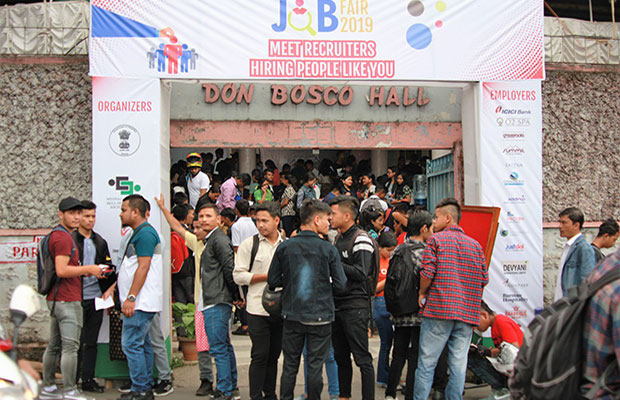
Pathways to Employment for Marginalized Youth in India
With more than 440 vocational training centers located in all 29 of India’s states, the Don Bosco Tech Society (DBTS) is comprised of the largest non-governmental organization (NGO) dedicated to preparing marginalized youth for long-term employment and financial stability. At a recent job fair held at the Don Bosco Technical School in Shillong (the capital city of Meghalaya, India’s smallest state), the organization’s positive impact was clearly on display.
DBTS is a social impact initiative first launched by Salesian missionaries in 2006. Today, over 800 employees representing business experts, engineers, IT entrepreneurs, media professionals, social workers and others are unified in one overarching and ambitious objective: to train 2 million youth, ages 18-35, for market-based work in the “new economy” by 2022.
“There’s a paradox today in India,” explains Father Mark Hyde, director of Salesian Missions. “On the one hand, there are a growing number of job opportunities in industries like technology, healthcare, cybersecurity and more. On the other, far too many youth lack the education they need to avail themselves of these opportunities. Poverty, discrimination and other factors cause a significant number of them to drop out of school—which creates a frustrating loop: employers need workers, and eager youth want to work, but the mismatch in supply and demand leaves an imbalance.”
This is why DBTS focuses on market-based training opportunies intended to, in their own words, “rewrite India’s skillscape.”
In Meghalaya, these efforts are particularly important: according to the India-based online media source First Post, a large majority of the state’s lower-income workers have been shut out of employment since the government banned coal mining in 2014. With no other skills and no further industrial-oriented jobs, these workers and their families have been financially and socially crippled.
Each year at the Don Bosco Technical School in Shillong, in operation since 1923, students can enroll in courses designed to reorient their expertise in alignment with local needs—from carpentry to baking, computer networking to cell phone diagnostics and repair, and dozens of other options in between. Whether they take advantage of short-term courses focused on rapid entry into the workforce, or opt for more traditional, one- to two-year training tracks, all emerge with strong prospects for the future bolstered by complimentary job-placement support.
This is where the job fair at the Don Bosco Technical School comes in.
In partnership with the Meghalalya State Skills Development Society, DBTS connected hiring managers from more than 30 different companies comprising health care, insurance, banking, hospitality, aviation and other industries, with over 4,200 young employment-seekers: both those enrolled at the Don Bosco Technical School, and those in the greater community who otherwise would never have known about such opportunities. As a result, many participants received immediate job offers.
“Skills development has become a national priority in India,” says Fr. Mark, “and we Salesians are proud of our efforts to address this important initiative. Although we have a long way to go, we can envision the bright and dignified futures that youth in India truly deserve—thanks to our partnerships with the government and employers, and the generosity of our many friends.”
Our mission trains marginalized youth around the world for long-term employment and financially secure futures. What’s your mission?
Learn more about our work in India.

